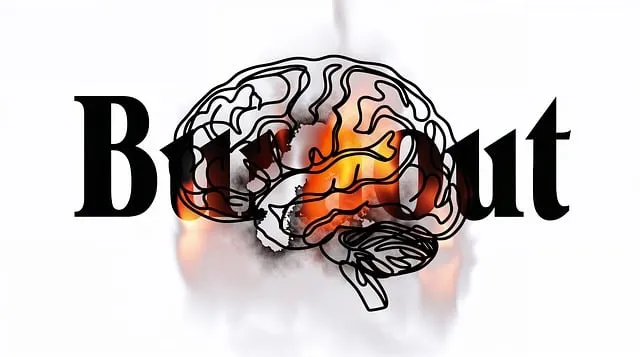Longmont Kaiser Permanente mental health leads the way with its revolutionary RFM (Resilience, Flexibility, Mastery) approach, a holistic framework that equips individuals to confront life's challenges head-on. This program combines confidence-boosting strategies, mental health education, and conflict resolution techniques, offering diverse programs like mindfulness meditation, journaling exercises, and stress management workshops. Their emphasis on resilience building, backed by research, includes deep breathing, meditation, CBT, and coaching, enabling individuals to strengthen emotional fortitude. Adopting Recovery-Focused Methodology (RFM) for long-term recovery, they inspire through podcast series featuring recovery stories, fostering community engagement and best practice sharing among professionals.
Resilience is a powerful tool in navigating life’s challenges, and RFM (Recovery, Flexibility, and Mastery) offers a structured approach to building it. This article explores how RFM can significantly enhance mental well-being, drawing from the successful initiatives at Longmont Kaiser Permanente, a leading provider of mental health services. We’ll delve into practical exercises for daily life integration, showcasing how RFM is transforming mental health care practices in Longmont and beyond.
- Understanding RFM and its Impact on Mental Well-being
- Longmont Kaiser Permanente: A Hub for Resilience Training
- Effective Resilience Building Exercises for Daily Life
- Integrating RFM into Mental Health Care Practices
Understanding RFM and its Impact on Mental Well-being

At Longmont Kaiser Permanente, mental health is a cornerstone of their patient care philosophy. Among various tools they employ to enhance mental well-being, RFM (Resilience, Flexibility, and Mastery) stands out as an innovative approach. RFM focuses on building resilience by cultivating flexibility in thinking and behavior, while also empowering individuals to take mastery over their lives. This holistic framework recognizes that navigating life’s challenges requires more than just coping mechanisms; it demands a profound shift towards embracing adaptability and personal growth.
By integrating confidence-boosting strategies and mental health education programs designed to foster resilience, Longmont Kaiser Permanente equips individuals with the tools needed to tackle stress, anxiety, and other mental health issues head-on. Moreover, conflict resolution techniques are seamlessly woven into this process, enabling patients to navigate interpersonal challenges with greater ease and understanding. This multi-faceted approach not only enhances overall mental well-being but also paves the way for a more fulfilling and balanced life.
Longmont Kaiser Permanente: A Hub for Resilience Training

Longmont Kaiser Permanente has emerged as a prominent hub for resilience training, prioritizing mental health and well-being within the community. The organization offers a range of programs designed to equip individuals with powerful tools for navigating life’s challenges. Through their comprehensive approach, they provide not only Mindfulness Meditation practices but also encourage participants to explore Mental Wellness Journaling Exercises, offering guidance on how to process emotions and cultivate resilience.
This commitment extends beyond individual efforts; Longmont Kaiser Permanente hosts Stress Management Workshops, fostering a sense of community and collective resilience. Their initiatives showcase a holistic understanding of mental wellness, acknowledging that building resilience is both an individual and communal journey. By making these resources accessible, they empower folks to take charge of their mental health and thrive in the face of adversity.
Effective Resilience Building Exercises for Daily Life

Building resilience is an essential aspect of maintaining good mental health, and Longmont Kaiser Permanente recognizes this. They offer various exercises designed to enhance individuals’ ability to cope with stress and adversity. One effective method is incorporating mindfulness practices into daily routines. Simple techniques like deep breathing exercises, meditation, or even mindful walking can significantly reduce anxiety and improve overall well-being. These activities encourage individuals to focus on the present moment, fostering a sense of calm and clarity.
Additionally, Longmont Kaiser Permanente promotes structured resilience-building programs, such as cognitive-behavioral therapy (CBT) and mental wellness coaching. CBT helps individuals identify negative thought patterns and replace them with healthier alternatives, thereby reducing the impact of stress and mental illness stigma reduction efforts. Mental wellness coaching programs further support personal growth by teaching valuable coping strategies, goal setting, and self-care practices. Engaging in these activities consistently can contribute to enhanced resilience, enabling people to navigate life’s challenges more effectively.
Integrating RFM into Mental Health Care Practices

At Longmont Kaiser Permanente mental health, integrating RFM (Recovery-Focused Methodology) into care practices has emerged as a powerful strategy to enhance patient outcomes and foster resilience. This approach shifts the focus from simply managing symptoms to promoting long-term recovery and well-being. By incorporating RFM, mental health professionals can create a supportive environment that empowers individuals to take an active role in their healing journey.
The benefits of this integration extend beyond traditional therapy sessions. It encourages patients to develop coping mechanisms tailored to their unique needs, thereby improving their ability to navigate challenges and stress. Moreover, RFM facilitates the creation of a mental wellness podcast series production, where individuals share their recovery stories, providing inspiration and valuable insights for others seeking similar support. This not only enhances community engagement but also serves as an effective tool for risk management planning among mental health professionals, ensuring they stay updated on emerging trends and best practices in patient care.
Resilience is a powerful tool for enhancing mental well-being, and Longmont Kaiser Permanente has recognized this by establishing itself as a hub for resilience training. By integrating RFM (Resilience, Flexibility, and Mastery) techniques into mental health care practices, healthcare providers can offer their patients effective strategies to navigate life’s challenges. The exercises discussed in this article provide practical tools for daily resilience building, enabling individuals to foster adaptability and emotional strength. Adopting these practices could significantly impact the way Longmont Kaiser Permanente and other healthcare organizations support the mental health of their communities.






